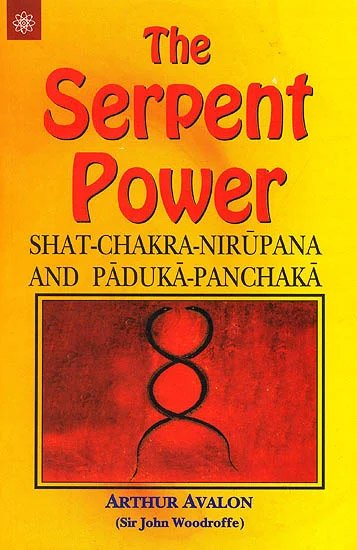Shat-cakra-nirupana (the six bodily centres)
by Arthur Avalon | 1919 | 46,735 words | ISBN-10: 8178223783 | ISBN-13: 9788178223780
This is the English translation of the Shat-cakra-nirupana, or “description of the six centres”, representing an ancient book on yoga written in the 16th century by Purnananda from Bengal. This book investigates the six bodily centres famously known as Chakras. The text however actually forms the sixth chapter of the Shri-tattva-cintamani, compiled...
Verse 34
Sanskrit text, Unicode transliteration, Word-for-word and English translation of verse 34:
ध्यानात्मा साधकेन्द्रो भवति परपुरे शीघ्रगामी मुनीन्द्रः
सर्वज्ञः सर्वदर्शी सकलहितकरः सर्वशास्त्रार्थवेत्त ।
अद्वैताचारवादी विलसति परमापूर्वसिद्धिप्रशिद्धो
दीर्घायुः सो'पि कर्ता त्रिभुवनभवने संहृतौ पालने च ॥ ३४ ॥dhyānātmā sādhakendro bhavati parapure śīghragāmī munīndraḥ
sarvajñaḥ sarvadarśī sakalahitakaraḥ sarvaśāstrārthavetta |
advaitācāravādī vilasati paramāpūrvasiddhipraśiddho
dīrghāyuḥ so'pi kartā tribhuvanabhavane saṃhṛtau pālane ca || 34 ||The excellent Sādhaka, whose Ātmā is nothing but a meditation on this Lotus, is able quickly to enter another’s body[1] at will, and becomes the most excellent among Munīs, and all-knowing and all-seeing. He becomes the benefactor of all, and versed in all the Śāstras. He realises his unity with the Brahman and acquires excellent and unknown powers.[2] Full of fame and long-lived, he ever becomes the Creator Destroyer, and Preserver, of the three worlds.
Commentary by Śrī-Kālīcaraṇa:
In this verse he speaks of the good to be gained by the Dhyāna of this Lotus.
“Most excellent among Munis” (Munīndra).—A Muni is one who is accomplished in Dhyāna and Yoga[3] and other excellent acquirements The suffix Indra means King or Chieftain, and is added to names to signify excellence.
“Versed in all the Sāstras” (Sarva-śāstrārthavettā).—Such an one becomes proficient in the Śāstras and in Divine knowledge, and thus he becomes all-seeing (Sarva-darśī)—i.e., able to look at things from all points by reason of his being possessed of wisdom and knowledge which harmonises with Śāstras, manners, and customs.
“He realises” etc., (Advaitācāra-vādī).—He knows that this Universe and all material existence is the Brahman, from such sayings of Śruti as, “The worlds are Its Pāda (that is Aṃśas)”; “All that exists is the Brahman”;[4] and “I am the Deva, and no one else; I am the very Brahman, and sorrow is not my share.”[5] He knows that the Brahman alone is the Real (Sat), and everything else is unreal (Asat), and that they all shine by the light of the Brahman.[6] The man who by such knowledge is able to realise the identity of the Individual with the Supreme Spirit[7] (Jīvātmā and Paramātmā), and preaches it, is an Advaitavādī.
“Excellent and unknown powers” (Paramāpūrva-siddhi)—that is, most exalted and excellent powers.
“Full of fame” (Prasiddha)—i.e., famous by reason of his excellence.
“He ever becomes” etc., (So’pi kartā tribhuvana-bhavane samhṛtau pālane ca).—This is Praśaṃsā-vāda;[8] or it may mean that such Sādhaka becomes absorbed in the Supreme on the dissolution of the body, and thus, becomes the source of Creation, Preservation, and Destruction.
Footnotes and references:
[2]:
Siddhi.
[3]:
Dhyāna-yogādi-saṃpanna [saṃpannaḥ].—The word may also mean one who is an adept in Dhyānayoga and other acquirements.
[4]:
[5]:
Ahaṃ devo na cānyo’smi brahmaivāsmi na śokabhāk.
